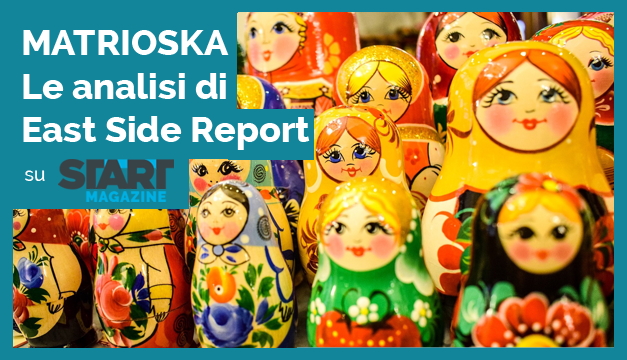The Visegrad 4 group between lacerations and attempts to mend

What happens in the Visegrad group 4. In-depth analysis by Pierluigi Mennitti
Despite the efforts here and there of regrouping, the solidity of the former group of "Visegrad 4" continues to be affected by the tears caused by the war in Ukraine. The missiles that landed on Polish territory prompted Hungarian premier Viktor Orban to send a message of solidarity and closeness to his Polish friends, even before it was understood that it was a mistake by Ukrainian anti-aircraft fire. But the position of the Hungarian leader who is always very understanding of Moscow's reasons remains an unhealed vulnerability that always causes new divisions even within the political elites of the individual member countries of this particular central European group.
This is the case of the Czech Republic, where the rift creeps right into the institutional buildings. On the one hand, MPs from both chambers have decided to boycott the forthcoming meeting with their counterparts from “Visegrad 4” due to Russia's policy on Hungary. On the other hand, the Czech Prime Minister Petr Fiala is preparing instead to participate in the summit of the heads of government of the regional group, also with the aim of mending where possible and restoring homogeneity to an alliance, albeit informal, when one of his member countries – Poland – is experiencing the risk of being directly involved in the conflict, albeit by mistake.
But one of the points on the agenda of the summit concerns another – cumbersome – country in the central European area and an issue capable of reuniting the members of Visegrad divided over Moscow: the controversial 200 billion euro German economic shield to defend families and German companies against expensive energy. Warsaw, Prague, Bratislava and Budapest are looking for a common approach in supporting their industries and businesses in the face of the lonely flight of larger and more powerful countries like Germany. “We prefer a common approach and common rules because in a competition between national budgets we would certainly not be in first place, nor could we support it,” Fiala told Seznam Zprávy newspaper.
The meeting between the prime ministers of the Visegrad group will be held on November 24 in Slovakia. By deciding to participate, Fiala slips away from authoritative political and institutional exponents of his own country, such as the president of the Chamber of Deputies Markéta Pekarová Adamová and the president of the Senate Miloš Vystrčil, who instead have both already refused to sit at the same table with their Hungarian counterparts at the upcoming meeting of V4 legislative leaders to be held the following day, November 25, forcing the Slovak hosts to cancel the meeting. A step backwards that brings relations between the Visegrad countries back to the maximum tensions recorded in the aftermath of the Russian attack in Ukraine, when other meetings were canceled to contest Orban's pro-Putin Sonderweg. The most striking was the summit of defense ministers last March, again organized by the Slovaks who held the presidency of the V4 in this turbulent phase of relations.
The two presidents of the chambers are part of the government coalition that supports Fiala's government, as befits the practice of the spoil system of Czech politics. In particular, Vystrčil comes from Fiala's Civic Democratic Party (ODS), of a liberal-conservative and somewhat Eurosceptic orientation, while Adamová leads the junior partner of the government coalition, the fiercely pro-European liberal-conservative Top09 party.
But the frictions in the V4 at the parliamentary level are not confined to the Czech Republic alone. The same Czech newspaper Seznam Zprávy also reveals that the leaders of the two chambers of the Polish Sejm have also expressed their intention not to participate in the meeting of 25 November, thus confirming irritations towards the Hungarian counterpart and contributing, perhaps even more decisively than the Czech colleagues, to the cancellation.
Naturally, the Hungarian side responded in kind. László Kövér, president of the unicameral parliament of Budapest, regretted the postponement of the meeting, arguing that "the remarks of the speakers of the parliament of the Czech Republic on our country are false and disrespectful, do not correspond to the facts and question the right of the Budapest government to define its own policy in the Hungarian national interest”.
It is not difficult to identify abundant references to Hungarian sovereignty in Kövér's words, but this time it seems difficult to compose the individual national interests of the V4. Budapest's continued refusal to sever economic ties with Moscow has numb the alliance's joint action.
In addition to the Slovaks, who have to do it as a presidential duty, it is now Fiala himself who is taking the initiative for mending. “I think it is no secret that Hungary has a different approach than the other three V4 countries,” said the Czech prime minister, “however, and this is important, our dialogue has led Hungary to support so far all the key decisions of the EU negotiations”. For Fiala it is in fact a debut. That of 24 November will be the first high-level meeting of the V4 group after its appointment in November 2021: “I do not want to prejudge the results of the negotiations. The important thing is that we talk to each other. The V4 at the highest level has not met in recent months. It is certainly a useful format that has proven its worth in the past,” he hopes. Slovakia has found an ally to start gluing the pieces of the V4. Now we have to see what the Poles and the parliamentarians of its own Czech Republic think about it.
This is a machine translation from Italian language of a post published on Start Magazine at the URL https://www.startmag.it/mondo/il-gruppo-visegrad-4-fra-lacerazioni-e-tentativi-di-ricuciture/ on Sun, 20 Nov 2022 06:39:57 +0000.
